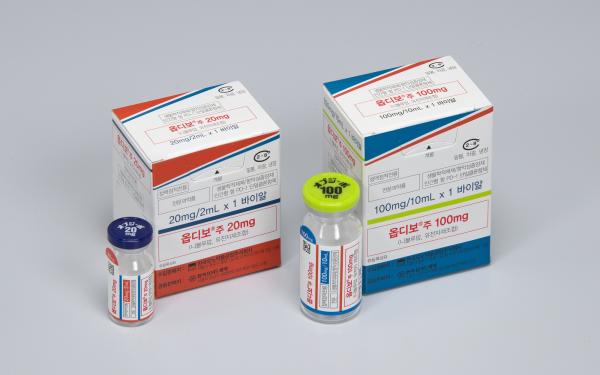Bristol-Myers Squibb Korea Pharmaceutical and Ono Pharma Korea said their cancer immunotherapy Opdivo obtained additional approval for gastric cancer on Friday, increasing the number of indications from seven to eight.

Following the green light, Opdivo can be used as a treatment for recurrent or advanced gastric cancer or gastroesophageal adenocarcinoma after two or more previous chemotherapies, or for advanced typical Hodgkin's lymphoma that recurred or advanced despite injections of brentuximab vedotin, before or after hematopoietic stem cell transplantation (HSCT). The treatment can be used regardless of whether programmed death-ligand 1(PD-L1) is present or not.
The nod for the indication for gastric cancer or gastroesophageal adenocarcinoma was based on results of ONO-4538-12, a phase-3 trial, BMS Korea said.
According to the company, Opdivo treatment reduced the risk of death in patients with relapsed or advanced gastric adenoma or gastric adenocarcinoma by 37 percent compared with placebo after two or more previous chemotherapies. The one-year survival rate of those treated by Opdivo was 26.2 percent, and that of the placebo group, 10.9 percent.
The expansion of the indication for Hodgkin's lymphoma was based on a cohort C study in patients treated with brentuximab vedotin before or after autologous stem cell transplantation in the CheckMate-205 clinical trial.
The 8.8 months of median follow-up in the study showed that Opdivo’s objective response rate was 73 percent.
Regardless of the timing of getting HSCT and brentuximab vedotin, Opdivo’s therapeutic effects were constant, the company said. Seventeen percent of patients (17 of 100) showed complete response and the median progression-free survival time was 11.2 months.
“As we are studying Opdivo to treat various carcinomas, we believe that the drug will treat more carcinomas in the future,” Ono Pharma Korea CEO Kunihiko Ito said.
BMS Korea CEO Park Hye-seon also said, “People still long for new treatments for cancer. The additional approval for gastric cancer was the first among immunotherapies. This is particularly meaningful that we have widened the selection of treatments for gastric cancer which have been limited so far.”

